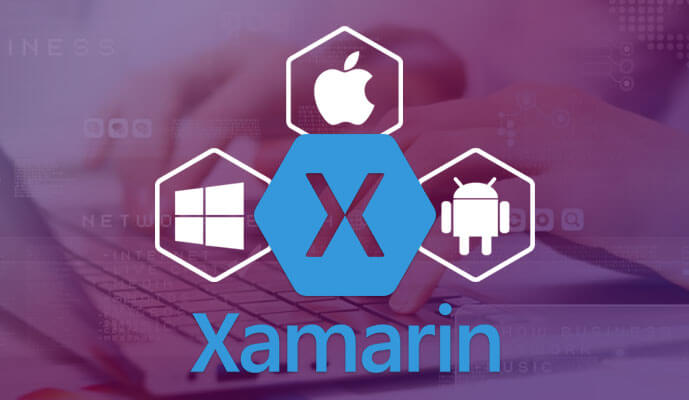
Why Xamarin Over Other Cross-Platform Frameworks
3 February 2017
Overview
Mobile Application development has been evolving at a remarkable rate as a large number of audience are using mobile for conducting various activities. Different mobile applications are designed for different purposes. This unprecedented growth in mobile app development have created lucrative opportunities for various businesses to augment their online presence. With the advent of mobile application development, thousands of companies are involving in creating different mobile apps for different platforms like iOS, Android and Windows.
This significant increase in the mobile app development world have encouraged the development companies to create an outstanding cross-platform tool that not only would cut the development cost but will also help a developer get a desired result with minimum time investment. There are wide varieties of a cross-platform frameworks for mobile app development including Appcelerator, PhoneGap and Xamarin.
According to a recent online survey “a large number of developers and development companies choose Xamarin over other mobile app development framework”. Technically speaking, Xamarin is a cross-platform framework that enables the developer to create iOS, Android and Windows app easily using a C# code base. Xamarin-based applications are always at the top in terms of UI/UX and performance. Not only this, Xamarin also helps in detecting bugs and flaws in the mobile app and ensure a quick loading and error-free app. Thus, Xamarin is known to be the most efficient framework for creating high-quality mobile applications.
But there is an ongoing battle between Xamarin app development vs Native app development. Both the development technologies has its own significance, its importance and shortcomings. So, in today’s article, we will see the advantages of Xamarin that make this framework a perfect choice in development of seamless mobile apps. Along with this, we will compare Xamarin with the other native frameworks.
Key Advantages Of Xamarin
Full Code Reusability
As already discussed, Xamarin boosts the mobile app development by using same code base. Thus, developers can easily reuse the 96% of source code. This robust framework works efficiently with both Visual Studio and Xamarin IDE (Integrated Development Environment) and does not need switching between development environments.
Offers Complete Testing Solution
Unlike various hybrid and native apps development, the Xamarin-based mobile app offers an ultimate testing and performance tracking solutions for the created mobile app. Thanks to Xamarin Test Cloud that allows the developers to automatically run the UI testing and identify the various bugs in the app and ensures a performance-oriented mobile app.
Create Flawless User-Experience
Apps for Android, iOS and Windows built using Xamarin .Forms ensure a flawless user experience for the app users and hence is suitable for large and complex business projects. The use of Xamarin.Forms help in increasing the speed of the mobile app and help achieve desired business objectives.
Compatibility With MVVM & MVC Patterns
If we talk about the compatibility, Xamarin is fully compatible with MVVM (Model View ViewModel) and MVC (Model-View-Controller) development patterns. Both the patterns have their own significance:
Model View ViewModel pattern (MVVM) makes it easier for a developer to create different projects using the same code base.
Model-View-Controller (MVC) looks after the speed and quality of the mobile app development.
Does Not Require Any Extra Plugin
Mobile applications created with Xamarin offers better user experience because these apps are developed with basic user interface controls. Therefore, the xamarin-based app does not require support from any additional plugins.
Xamarin vs Native Development
There have been a never-ending argument among developers related to Xamarin vs Native app development platforms. Although both the platforms are powerful for developing dynamic mobile apps, but still many of mobile developers and business holders fail to take a precise decision.
Xamarin Platform builds native apps for the multiple platforms using same code base through same integrated development environment.
Native Platform builds apps for a single platform using Java, Objective-C, C#, Visual Basic and XAML.
So, in this section, we will compare the Xamarin and Native platform on the basis of various parameters that will allow you to easily identify which of the platforms suit your objective and your business requirement.
Which Is Best – Xamarin Or Native?
| Parameters | Xamarin Platform | Native Platform |
| Software Stack | Single software stack – single Codebase (C#, .Net framework + Native libraries) | Different Software for different Platform: Android – Java Windows – C#, Visual Basic and XAML iOS – Objective-C |
| Hardware Potential | Xamarin Platform has high hardware capability, it employs APIs of a particular platform. | The native platform has high capability and provides complete support. |
| Code Reusability | The Xamarin platform allows the 96% of code reusability. | The Native platform does not allow code reusability. |
| Performance | Xamarin based app ensures similar to native prformance. | Native based app ensures excellent performance. |
| UI/UX | Offers complete UI solution for each platform. | Offers UI solution according to the platform. |
Although, Native mobile app development is excellent in terms of performance and capabilities Xamarin offers the same performance & capabilities, but in a cost effective manner.




